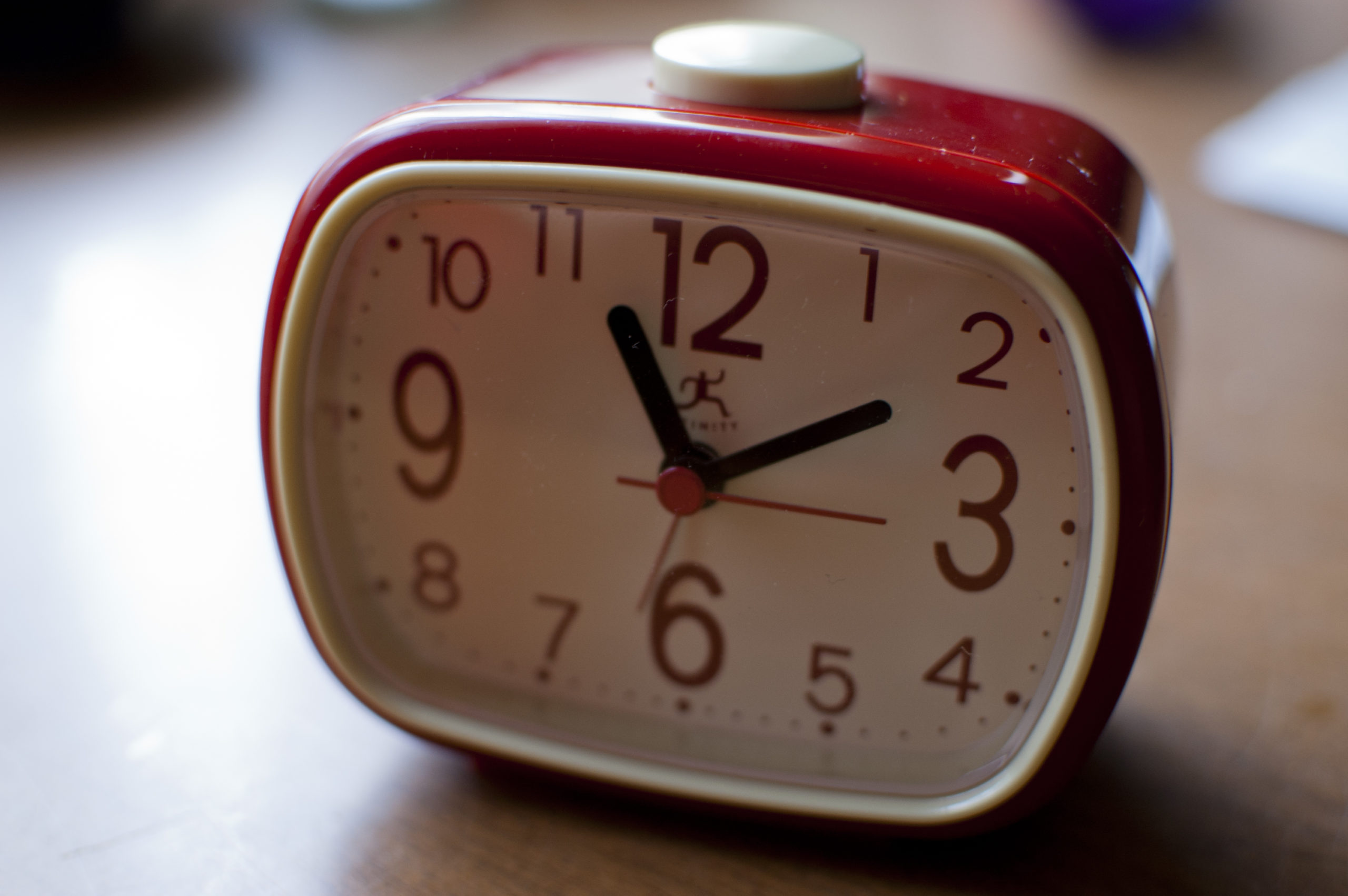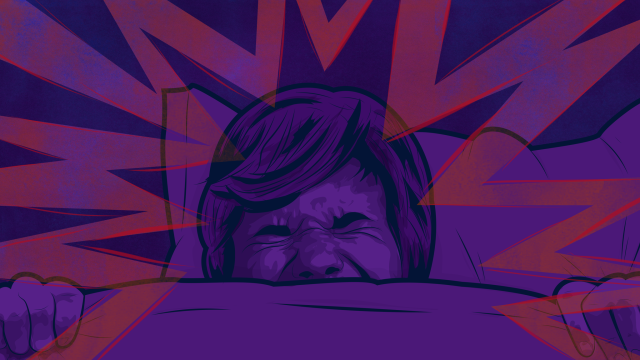Few things are scarier than watching someone you love freak out uncontrollably at night — even if they won’t remember. Scarier still is hearing that someone was you from a loved one or roommate. Those are night terrors, and they’re no ordinary nightmares. Here’s why and when they happen, and how you can stop them.
Illustration by Sam Woolley. Photos by Andrea Floris, Susana Fernandez, and Clint Gardner
Night Terrors Are Not Nightmares

A nightmare is, simply, a bad dream. But no matter how terrifying that dream may be, it’s not the same thing as a night terror. Nightmares are vivid and disturbing, and you may remember them when you wake up. Some people get them more than others. Nightmares can be triggered by stress, some medications, and perhaps even spicy food. But they’re still not night terrors.
Night terrors, also called sleep terrors, are a completely different experience. In a night terror, you can move and talk, but you don’t actually wake up. Your eyes might be open. You are caught in a sort of limbo between sleep and wakefulness.
If you have night terrors as an adult, you may not even know it. The terrors could be disturbing your sleep, though, making you wake up tired. And if you have roommates or family members in the house, they will certainly be able to tell you about it. One to two per cent of adults get night terrors, compared to six per cent of children.
Some estimates put the children’s number as high as 15 per cent.
Parents describe children who have night terrors as screaming or speaking, maybe thrashing around and completely inconsolable. You cannot easily wake somebody up while they are having a night terror, and if you do, they may just become even more frightened.
Night terrors are a close relative of sleepwalking: both involve a person acting like they are awake when they are really asleep; and in both cases the person typically has no memory of it in the morning.
Night Terrors Are Scary to Watch, But They’re Mostly Harmless

We don’t fully understand why night terrors occur. Some of the triggers seem to be illness, sleep deprivation, and any sort of stressful situation in the person’s life. Caffeine and other stimulant drugs may trigger them. Children with sleep apnea are also more likely to experience night terrors.
There isn’t a lot you can do to prevent night terrors, but a good bedtime routine is a start. According to the American Sleep Association, getting into the deepest stage of sleep as quickly as you can may help to prevent night terrors.
That’s because the terrors happen during slow wave sleep, a stage of deep, non-dreaming sleep. Getting to bed on time, and in a relaxing environment, seems to help your body move through the stages more smoothly.
If you’re a bystander during a night terror, you don’t have to do anything special. Just keep the person safe (move any sharp or breakable objects out of the way, for example) and stay out of the way if the person is acting violently. If the person with the terror is your child, you’ll naturally want to comfort them — but someone having a night terror can’t usually be soothed or even woken up. They are truly asleep, even though their eyes may be open. After 10 to 20 minutes, the person will typically settle down into a peaceful sleep as if nothing happened.
If Someone You Know Has Night Terrors, Wake Them Up Before They Begin Freaking Out

If your child, partner, or roommate has night terrors often, there is a technique that can stop them. It seems to be pretty reliable, according to sleep specialists like Christopher Winter. His son used to have night terrors. “We’d wait about 30 minutes and go in and wake him up, rub his back, and as soon as he stirred, we’d just leave, and that pretty much stopped them.”
The fancy name for this technique is scheduled awakenings. When it was first described in the medical journal BMJ in 1988, parents were asked to wake their child up about 15 minutes before they expect the night terror to occur.
Night terrors tend to happen at a predictable time each night, often an hour or two after bedtime. Parents who couldn’t pinpoint a time were asked to wake up their child when they started to see some activity, like sweating or small movements, that commonly happen just before a night terror.
All nine children stopped having night terrors after just a week of awakenings. Other successful studies have been published since then, but none of them are large randomised controlled trials — so there isn’t a clear evidence base to say how effective it is in the general population.
Still, many people report it works, and it doesn’t hurt to try. If you live alone, you’ll need somebody’s help to figure out how long after bedtime you tend to have the terrors. Once you know that, you can set an alarm to wake you up a little before that time. When the alarm goes off, just dismiss it and go back to sleep.
There is also an under-the-mattress gadget, the Lully Sleep Guardian, that claims it can detect from your movements when you’re about to have a night terror and wake you up. The company touts an 80 per cent success rate, but that comes from a company study where parents were buzzing their child’s device as part of a scheduled awakenings protocol. They haven’t published any data involving the automatic feature.
Scheduled (or automatic) awakenings may not be a magic bullet for everyone with night terrors, but they do seem to be fairly effective for many folks. As always, if you can’t solve your sleep problems on your own or if you want to talk about your options, talk to your doctor or even a sleep specialist.

Comments